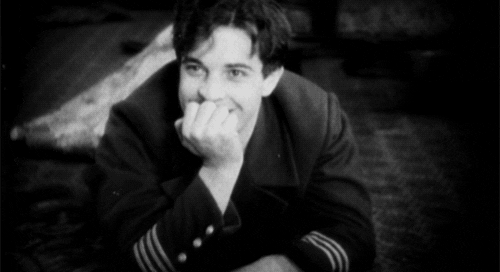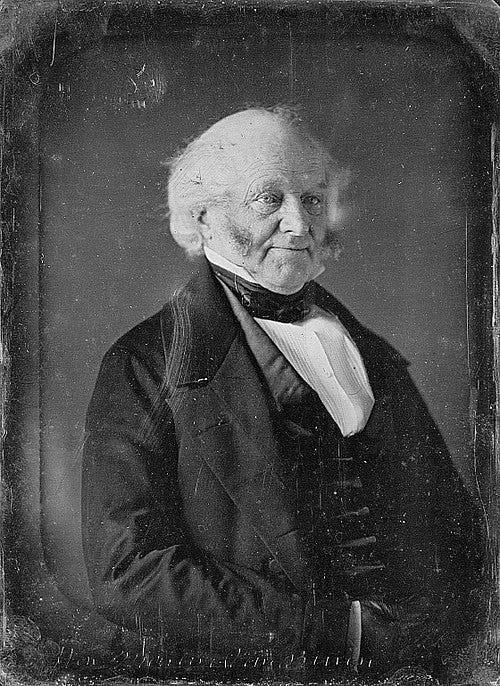How to like yourself better
Happy Friday, Intentionalists!
Most of us understand the importance of loving ourselves. It’s healthy to acknowledge our self-worth, to take care of our health, prioritise our needs and to set boundaries. But what about liking ourselves? Aren’t loving and liking ourselves the same thing?
While both increase our confidence and self-esteem, there is a subtle but important difference.
Let me explain it this way: Many people love their family of origin. They are deeply bonded with them through shared experiences. But they don’t actually like them the same way they like being with their friends. Many people would jump through hoops to help a family member who was in trouble, but they wouldn’t necessarily want to spend time with them other than Christmas and other national holidays. It would drive them crazy to listen to their brother’s conspiracy theories for more than a few hours a year or deal with their mother’s constant concern over their delay in giving her grandchildren. That’s because we love people based on who they are, but we like them depending on how they are.
While you can get away from your relatives, you can’t get away from yourself. That means, as well as loving yourself, it is important to like yourself too.
Unfortunately, people who like themselves are rare for a myriad of reasons. Human culture and power structures have largely discouraged positive self-regard, dismissing it as ‘vanity’. Religions describe human beings as ‘sinners’ who need redemption, and any pleasure they experience is labelled as ‘depraved’. Advertisers convince us that there are endless things wrong with us that only their products can ‘fix’.
Television, magazines and social media offer images of human perfection (a quality that even those performing in them don’t necessarily possess in real life) so that everybody else falls short in comparison. Overly critical parents who don’t like themselves raise children who act the same way. And strangely, we often try to motivate ourselves with negative messages, e.g. 100 more push-ups, you lazy tub of lard instead of You’re doing great. Keep going!
But just as being around people we like energises and inspires us, so liking ourselves makes us feel alive. It is good for our health and our mental well-being. People who like themselves tend to like others more, too. They spread compassion and kindness instead of hate and division.
How can we like ourselves more? That is the topic of today’s newsletter. So, grab your journal and a pen and let’s get started!
PROMPTS
1. Take time to ponder the question of whether you like yourself?
Here are some prompts to inspire your deep thinking:
If my plans for the weekend were suddenly cancelled, would I enjoy spending time alone?
How do I feel around other people? Confident and self-assured or awkward and uncomfortable? Am I authentic, or do I pretend to be someone else to make people like me?
Do I do things for my own pleasure rather than to impress others? For instance, I like to dress up and look good because it makes me feel good about myself. Or do I do it only to impress others, and when I’m by myself, I wear dowdy clothes and don’t wash my hair for days?
What is my inner self-talk like? Do I say things to myself like: You can do this! Give it a try and see how it goes. You look great! etc Or, am I more likely to say things to myself along these lines: Why do you always say such stupid things? You look like an idiot? Don’t try that, you know you won’t follow through, etc
STRATEGIES
1. Change your perception
A lot of us don’t like ourselves because we are too self-critical. Instead of seeing a mistake as an opportunity to learn, we beat ourselves up about it (Sometimes for years afterwards!) and turn it into our permanent identity by labelling ourselves as ‘failures’.
If that’s something you do, create an identity for yourself as an explorer who is out on a journey where everything that happens is part of the adventure. That includes all the mistakes you make along the way and the crappy things that happen. What does an explorer do when they come up against an obstacle? They find a way through it and adventure on!
Write down three things you regret or tend to stew over. Then write next to each one: This was merely part of my adventure. I am moving on.
2. Treat yourself as you would your best friend
Think about your best friend. How do you behave towards them? When they telephone, do you sound happy to hear from them? Do you put out your best teacups or wine glasses when they come over? Do you forgive their foibles easily? Do you compliment them regularly and encourage them?
Write down ten ways you would treat yourself differently if you saw yourself as your own best friend.
3. Have more fun!
The more fun we have with people, the more we like them. The same is true of ourselves.
Write down a list of twenty things that are fun for you or that make you feel good.
E.g. reading a humorous book or watching a comedy, skipping, dancing to your favourite music, wearing bright blue, learning something new, building furniture, gardening, baking, trying different hairstyles, making funny videos, etc.
Then grab your diary and schedule those activities into your plans for the next month.
(Hint: if the activity is a larger project, break it down into smaller steps and schedule those steps into your diary.)
⚘ Spread the good vibes ⚘
If you enjoyed today’s newsletter, we’d love it if you could give us a heart.
If you think a friend could do with its uplifting message, feel free to use the button below to share it with them. Let’s make life good together 💌
FEEL GOOD AFFIRMATIONS
I am always learning and growing. I like that about myself.
I accept my flaws with love and good humour.
I am a delight to be with – both for myself and others.
(Pick an affirmation and say or write it slowly ten times. And if you want to repeat all the affirmations, that’s wonderful too!)
✧ For more ways to like yourself, be sure to follow us on Instagram and Facebook ✧
KELLY’S SILLY BIT
The most spoken word on the planet is the result of a joke nearly 200 years ago
O.K.
Brilliant, what is it?
No, that's it, two little letters. O.K. Or you could spell it as okay. That's ok too.
It first debuted in the Boston Morning Post in 1839 as a gag. A throwaway jab. Its editor, Charles Gordon Greene, was taking a swipe at another broadsheet, using O.K. as a deliberately misspelled version of ‘all correct’ (‘all korrect’).
What? I don't get it?
Ok. It turns out that in the wee years of the 19th Century, an abbreviation craze much like text or internet chat of the late 90s/noughties happened. Young educated elites slummed it with misspelled words as slang. Not only that, by doing so they were taking on a so-called bumpkin persona.
K.G. stood for Know Go (the incorrect spelling of No go)
O.W. was all right, an abbreviation for the deliberately mispelled ‘oll wright’
I know. I bet all this was a real knee slapper in the 1800s.
Or, something a little sweeter than the examples above, a fashionable young lady might say to her male friend O.K.K.B.W.P., which meant ‘one kind kiss before we part’. Adorbs!
So to sum up, o.k. was the shortening of ‘all korrect’, which was the hilarious misspelling of ‘all correct’. Okay?
U.S. presidents give the nod
O.K. was also a big part of the US presidential race a year later in 1840. The current president, who was running for office again, was from the New York town, Kinderhook, which he gave the nickname of Old Kinderhook. His campaign rallying cry became … you guessed it, O.K.! His supporters even began to form O.K. Clubs. It was a whole thing. His opponent got him a good one when he branded him with a MASSIVE BURN, saying that the president thought ‘ole kurrek’ was the proper spelling of ‘all correct’ and signed ‘O.K.’ on his presidential papers to indicate his approval. What a goose (is what he was saying), an old-time way of calling him a DILL! Vicious.
After this, though, it started to appear everywhere. It was in the Slang Dictionary of Vulgar Words. (I want that dictionary.) And from there started appearing in popular culture.
Sing it with me: Oklahoma, O.K.!
Other places it was thought to have come from:
Orrin Kendall - the manufacturer of a well-liked army biscuit
A Choctaw chief named Old Keokuk
President Woodrow Wilson thought it evolved from a Choctaw word that he spelled ‘okeh’
The Scottish expression ‘och aye’
The Greek ‘ola kala’ (it's good)
The French ‘aux Cayes,’ which refers to a Haitian port famous for its port
Okily Dokily!
I hope that was ok! If you have any other words you’d like me to look into the history of, pop them in the comments!
Be an intentionalist.
Belinda & Kelly XX
PS: Please tap the heart button on this post if you enjoyed it, or share it with a friend! It helps people discover it on Substack. Let us know what you think in the comments!
✧ Read our previous newsletters ✧







